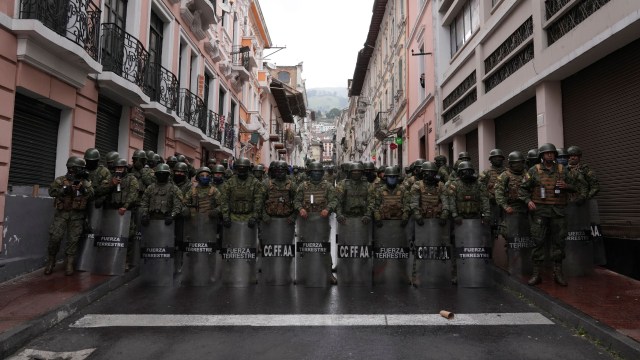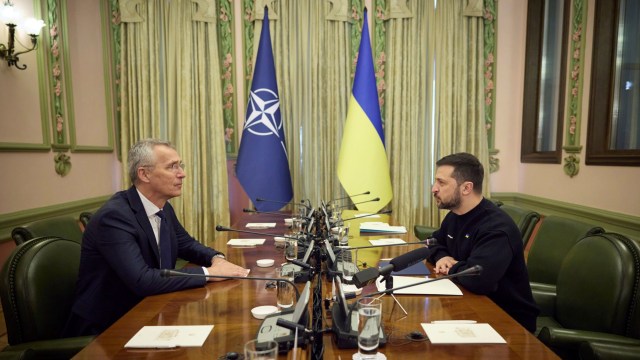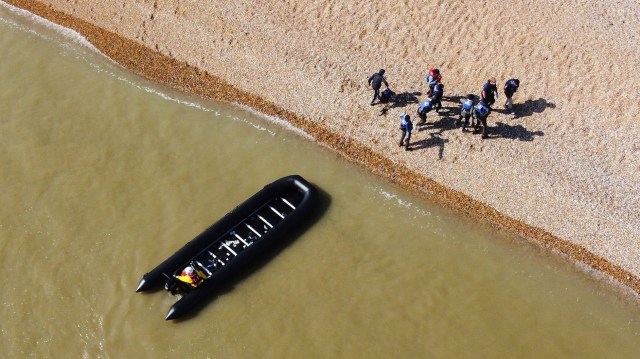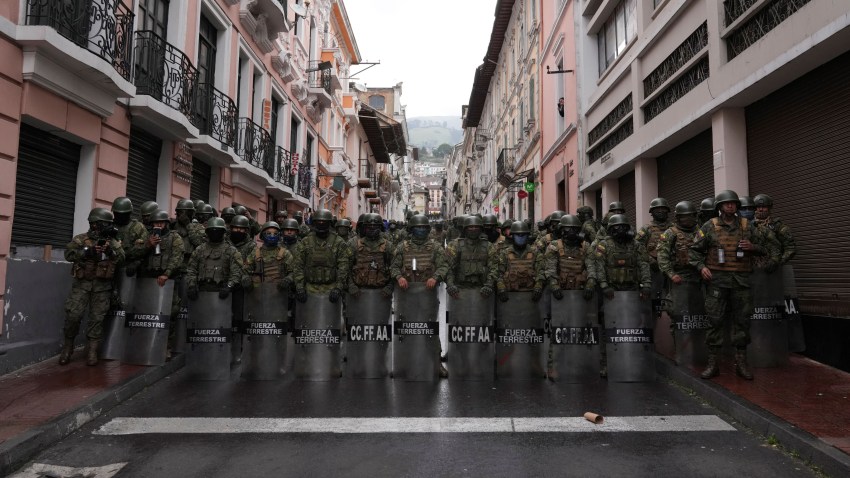Today at WPR, we’re covering a surge in crime and violence in Ecuador and Ukraine’s NATO membership prospects.
Get the Daily Review sent straight to your inbox every weekday.
First, though, here’s our take on today’s top stories:
Trump indicted: Former U.S. President Donald Trump has been indicted by the Justice Department on charges related to the mishandling of classified documents he kept upon leaving office. The charges include willful retention of national defense secrets, obstruction of justice and conspiracy, the Washington Post reports.
Our Take: The biggest and most obvious question is how Trump’s second indictment, following separate charges brought in New York in April, will affect the 2024 presidential election. Politically, Trump remains the current frontrunner to be the Republican Party’s nominee by a wide margin. And while a criminal indictment would normally hurt a candidate’s chances, Trump has so far maintained support among his base by framing the charges against him as a “witch hunt.”
Legally, the situation is unprecedented—at least in the United States. For clues on how Trump’s second reelection bid and his indictments will play out, our writers have turned to Latin America:
- “The evidence is clear: These campaigns seldom end well,” Robert Carlson and Javier Corrales wrote in December.
- “Even in cases when former Latin American presidents were ensnared in multiple scandals and one finally stuck, not all of them have ended their political careers,” columnist James Bosworth wrote after Trump’s first indictment.
*****
Ukraine dam update: Ukraine said Friday it had intercepted a phone call which proved a Russian “sabotage group” was behind the destruction of Kakhovka dam on Tuesday, which unleashed mass flooding. (Reuters)
More context from WPR:
- If Ukraine’s allegation is indeed true, that would make the dam’s destruction a war crime. As Charli Carpenter wrote in March, the ICC’s indictment of Putin likely won’t be its last.
- Read all of our coverage of the war in Ukraine.
*****
You can read the rest of today’s News Wire, a curated selection of one must-read article from every region, here.

For decades, Ecuador was one of Latin America’s least violent countries. Now, a crime surge has turned daily life upside down for many Ecuadorians, who feel the government is unable, or unwilling, to stop it. Will Freeman writes about how the country got to this moment:

A Surge in Crime and Violence Has Ecuador Reeling
Ecuador might be caught up in a political crisis, but if you ask most Ecuadorians what they are worried about, they won’t tell you politics. They will say crime and public authorities’ inability to stop it. Read more.
Should Ukraine join NATO, not eventually, but now? Columnist Paul Poast argues that the answer is yes.
It’s Time to Bring Ukraine Into NATO
NATO members have been hesitant to offer Ukraine immediate membership in the organization while it is at war with Russia. They shouldn’t be. Read more.


We want to hear your take on the issues we cover.
This week’s question: U.S. Secretary of State Antony Blinken will reportedly visit China later this month, amid a flurry of high-level contact between the two sides in recent weeks. Should the U.S. be seeking to unconditionally engage with China, or should it seek concessions from Beijing ahead of any dialogue?
WPR reader Chance Cansler in Meridian, Mississippi says:
In a world driven by realpolitik, the United States must adopt a pragmatic approach towards engaging with China. The limitations of concessions and coercive tactics become evident when dealing with a major global power. Engaging China as it allows for dialogue and cooperation, addressing mutual concerns and promoting shared interests.

EU countries agreed to reforms to the bloc’s asylum and migration system that would allow countries to send people whose asylum applications had been denied to a third country deemed safe.The agreement is part of a larger trend in the Global North toward resettlement schemes for refugees and asylum seekers.
Matthew J. Gibney argued earlier this week that states can and should deal with the rising number of asylum-seekers making risky voyages in a more humane way:

Instead of Resettlement Schemes, Make Migration Easier
June 6, 2023 | The Global North is now prioritizing resettlement over accepting asylum-seekers at the border. But there are better alternatives. Read more.
That’s all for today’s Daily Review. Coming up next week, we’ve got coverage of the ongoing conflict in Ethiopia’s Oromia region.
Have a great day,
Jakob Cansler
More from WPR
- Frida Ghitis on the scandals rocking Colombia’s president
- Emil Avdaliani on China’s charm offensive in Central Asia
- Alexander Clarkson on the implications for Germany of Erdogan’s reelection
- James Hamill on South Africa’s faux neutrality on the war in Ukraine
Jakob Cansler is WPR’s assistant editor and the author of the Cansler Culture newsletter.

